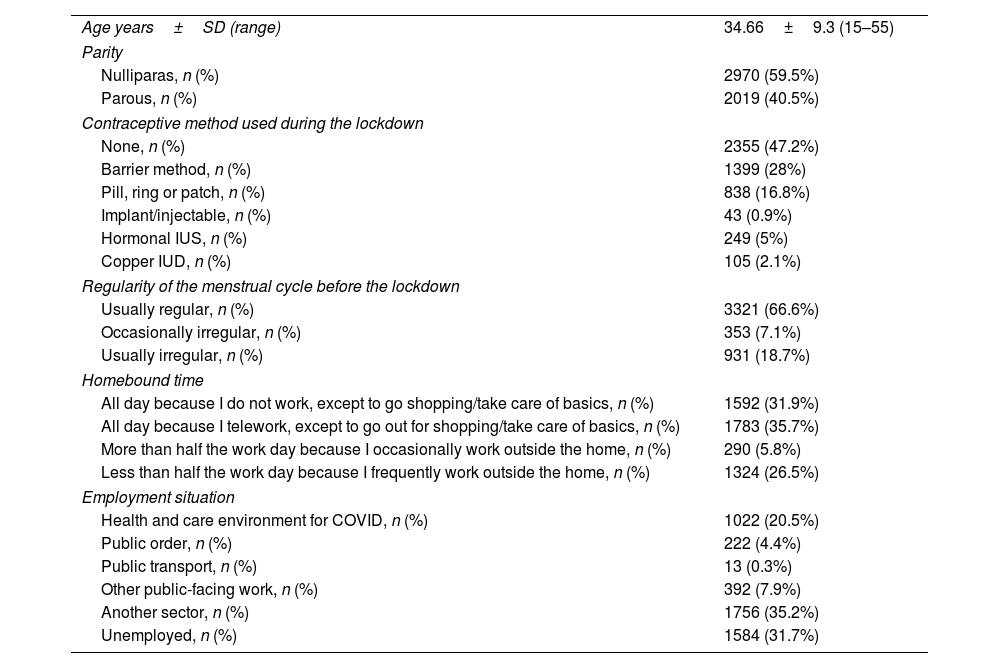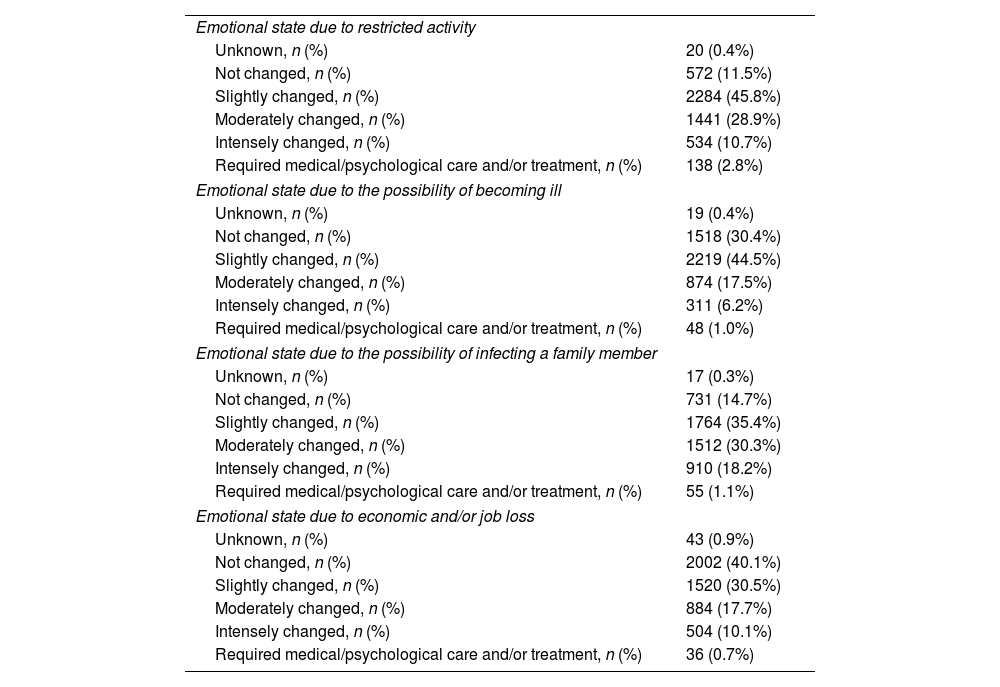To elucidate the presence, importance, and characteristics of menstrual changes related to stressful circumstances during the COVID-19 lockdown in Spain.
Study designAn online survey was administered in Spain to menstruating women aged 15–55 who had not contracted COVID-19. It collected information on activities during the lockdown, sexual activity, perceptions of emotional status, any changes in menstrual characteristics, and impact on quality of life. The analysis of menstrual changes was limited to responders who did not use hormonal contraception.
ResultsA total of 6449 women answered the survey, and 4989 surveys were valid for the final analysis. 92.3% of women had at least one menstruation period during the lockdown, while 7.7% had amenorrhea. Quality of life (QoL) associated with menstruation worsened in 19% of women, did not change in 71.7%, and improved in 1.6%. For 50.1% of the women, global QoL worsened during the lockdown; 41.3% remained about the same and 8.7% reported improvement. Sexual activity during the lockdown decreased in 49.8% of the respondents, remained unchanged in 40.7%, and increased in 9.5%. As far the menstrual changes are concerned, there were no statistically significant differences in amenorrhea incidence, regularity of the menstrual cycle, or the amount or duration of menstrual bleeding in non-hormonal contraceptive users when evaluated by the length and characteristics of isolation, the perception of exposure to COVID-19 and the economic or employment situation. Conversely, we found statistically significant differences according to the intensity of changes in emotional status due to lockdown stressors and changes in regularity, duration, and heaviness of menstruation.
ConclusionChanges in emotional status, but not the length and intensity of the isolation or exposure to the disease, significantly influenced menstrual disturbances during the COVID-19 lockdown.
Elucidar la presencia, importancia y características de los cambios menstruales relacionados con estrés durante el confinamiento por COVID-19 en España.
Diseño del estudioEncuesta en línea en España a mujeres de 15 a 55 años que no habían contraído COVID-19. La encuesta recopiló información sobre actividad laboral, actividad sexual, percepciones del estado emocional, características menstruales e impacto en la calidad de vida (CdV).
ResultadosSe recibieron 6.449 encuestas, y 4.989 fueron válidas para el análisis final. El 92,3% tuvieron al menos una menstruación durante el confinamiento, mientras que el 7,7% presentó amenorrea. La QdV asociada con la menstruación empeoró en el 19% de las mujeres, no cambió en el 71,7% y mejoró en el 1,6%. Para el 50,1% de las mujeres, la calidad de vida global empeoró durante el confinamiento; en el 41,3% permaneció igual y el 8,7% mejoró. La actividad sexual disminuyó en el 49,8% de las participantes, se mantuvo igual en el 40,7% y aumentó en el 9,5%. En las no usuarias de anticoncepción hormonal, no hubo diferencias estadísticamente significativas en la incidencia de amenorrea, regularidad del ciclo menstrual o la cantidad y duración del sangrado menstrual relacionadas con la duración y características del aislamiento, la percepción de exposición a la COVID-19 y la situación económica o laboral. Encontramos diferencias estadísticamente significativas en la regularidad, duración y cantidad de la menstruación relacionados con la intensidad de los cambios en el estado emocional por factores estresantes del confinamiento.
ConclusiónLos cambios en el estado emocional, pero no la duración e intensidad del aislamiento o la exposición a la enfermedad, influyeron significativamente en los trastornos menstruales durante el confinamiento por COVID-19.












